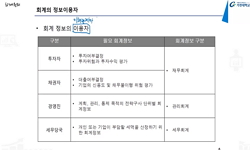미국 연방 정부는 1996 년 Personal Responsibility and Work Opportunity Reconciliation Act 제정과 함께 “마약과의 전쟁”을 선포하면서, 복지 부패와 만성적 마약 범죄를 줄이기 위하여 세 가지 종류의 정책...
http://chineseinput.net/에서 pinyin(병음)방식으로 중국어를 변환할 수 있습니다.
변환된 중국어를 복사하여 사용하시면 됩니다.
- 中文 을 입력하시려면 zhongwen을 입력하시고 space를누르시면됩니다.
- 北京 을 입력하시려면 beijing을 입력하시고 space를 누르시면 됩니다.

To Be Ambiguous or Not at All?: The Moderating Effect of Drug Felony on Fraud in the U.S. SNAP
한글로보기https://www.riss.kr/link?id=A106347967
- 저자
- 발행기관
- 학술지명
- 권호사항
-
발행연도
2019
-
작성언어
English
- 주제어
-
등재정보
KCI등재
-
자료형태
학술저널
- 발행기관 URL
-
수록면
25-46(22쪽)
-
KCI 피인용횟수
0
- DOI식별코드
- 제공처
-
0
상세조회 -
0
다운로드
부가정보
국문 초록 (Abstract)
미국 연방 정부는 1996 년 Personal Responsibility and Work Opportunity Reconciliation Act 제정과 함께 “마약과의 전쟁”을 선포하면서, 복지 부패와 만성적 마약 범죄를 줄이기 위하여 세 가지 종류의 정책을 도입하였다. 첫 번째는 life ban policy로 마약 범죄에 한번이라도 연루되면 다시는 복지 정책에 등록할 수 없게 하는 정책이며, 두 번째는 아예 아무런 규제도 가하지 않는 no ban, 마지막 세 번째는 주 정부가 요구하는 일정 규정을 만족하면 복지 정책 수혜를 조건부로 가능하게 하는 modified ban 이다. 이러한 배경에서 우리는 탈 중앙화와 복지 부패의 관계와 관련하여 세 가지 유형의 정책의 완화 효과를 분석하였다. 본 연구의 분석 결과, 재정 분권화 수준이 높을수록 복지 부패 수준이 증가하였으며, 이러한 경향은 특히 주 정부가 모호한 modified ban을 채택하였을 때 가장 심각하였다. 오히려 규제 정책이 전혀 존재하지 않는 경우보다 심해짐을 알 수 있었다. 따라서 향후 마약과 연루된 복지 부패를 줄이고, 만성 약물 중독자의 관리를 위하여 모호한 규제 정책을 시도하는 것보다, 오히려 만성 약물 중독자에 대한 직접적 관리에 더 많은 자원을 투입해야 할 것으로 보인다.
다국어 초록 (Multilingual Abstract)
The federal government of the United States declared a “war on drugs” with the enactment of the Personal Responsibility and Work Opportunity Reconciliation Act of 1996. To reduce fraud, the federal government recommends a life-ban policy under whi...
The federal government of the United States declared a “war on drugs” with the enactment of the Personal Responsibility and Work Opportunity Reconciliation Act of 1996. To reduce fraud, the federal government recommends a life-ban policy under which SNAP recipients cannot enroll in the SNAP for the rest of their lives, whereas state governments want to adopt a modified policy or nothing at all. Under this background, we analyze the moderating effect of three types of drug-ban policies in the context of the relationship between decentralization and the welfare fraud. Previous literatures revealed that a higher level of decentralization can increase fraud because of its ambiguity. Also, in principal–agent theory, the agents abuse information asymmetry caused by ambiguous and complex regulation. According to our empirical analysis, decentralization increases welfare fraud, especially when the ambiguous modified ban was adopted. Despite the general belief, obscure regulation or fraud prevention policies have caused more fraudulent behavior rather than the absence of such regulations. For these reasons, the U.S. federal government should guarantee free choice of state government and reduce the cost of identifying eligibility under ambiguous regulations. Investing more resources for managing chronic drug addicts can be relevantly reduce welfare fraud than adopting ambiguous regulations.
목차 (Table of Contents)
- Abstract
- Ⅰ. Introduction
- Ⅱ. Literature Review
- Ⅲ. Data and Methods
- Ⅳ. Results
- Abstract
- Ⅰ. Introduction
- Ⅱ. Literature Review
- Ⅲ. Data and Methods
- Ⅳ. Results
- Ⅴ. Conclusion
- References
- 국문요약
참고문헌 (Reference)
1 Born, M, "n West Virginia, SNAP Benefits Out of Reach for Drug Felons"
2 Luna, E, "Welfare fraud and the Fourth Amendment" 24 : 1235-1290, 1997
3 Rose-Ackerman, S, "The economics of corruption" 4 (4): 187-203, 1975
4 Godsoe, C, "The ban on welfare for felony drug offenders : giving a new meaning to life sentence" 13 : 257-567, 1998
5 Ogus, Anthony, "Regulation, Economics and the Law, Cheltenham, UK and Northampton" Edward Elgar 2001
6 Orgen, E. H, "Public Opinions about Public Welfare" 18 : 101-108, 1973
7 Gunningham, N, "Private Ordering, Self‐Regulation and Futures Markets : A Comparative Study of Informal Social Control" 13 (13): 297-326, 1991
8 Rondinelli, D. A, "Population distribution and economic development in Africa : the need for urbanization policies" 4 (4): 173-196, 1985
9 Mbaku, J. M, "Political democracy and the prospects of development in post-cold war Africa" 17 (17): 345-, 1992
10 Fan, C. S, "Political decentralization and corruption: Evidence from around the world" 93 (93): 14-34, 2009
1 Born, M, "n West Virginia, SNAP Benefits Out of Reach for Drug Felons"
2 Luna, E, "Welfare fraud and the Fourth Amendment" 24 : 1235-1290, 1997
3 Rose-Ackerman, S, "The economics of corruption" 4 (4): 187-203, 1975
4 Godsoe, C, "The ban on welfare for felony drug offenders : giving a new meaning to life sentence" 13 : 257-567, 1998
5 Ogus, Anthony, "Regulation, Economics and the Law, Cheltenham, UK and Northampton" Edward Elgar 2001
6 Orgen, E. H, "Public Opinions about Public Welfare" 18 : 101-108, 1973
7 Gunningham, N, "Private Ordering, Self‐Regulation and Futures Markets : A Comparative Study of Informal Social Control" 13 (13): 297-326, 1991
8 Rondinelli, D. A, "Population distribution and economic development in Africa : the need for urbanization policies" 4 (4): 173-196, 1985
9 Mbaku, J. M, "Political democracy and the prospects of development in post-cold war Africa" 17 (17): 345-, 1992
10 Fan, C. S, "Political decentralization and corruption: Evidence from around the world" 93 (93): 14-34, 2009
11 Lessmann, C, "One size fits all? Decentralization, corruption, and the monitoring of bureaucrats" 38 (38): 631-646, 2010
12 Gunningham, N, "Industry self‐regulation : an institutional perspective" 19 (19): 363-414, 1997
13 Andvig, J. C, "How corruption may corrupt" 13 (13): 63-76, 1990
14 Krause, J. H, "Following the money in health care fraud: Reflections on a modern-day Yellow Brick Road" 36 (36): 343-369, 2010
15 Arikan, G. G, "Fiscal decentralization : A remedy for corruption?" 11 (11): 175-195, 2004
16 Freille, S, "Federalism, Decentralization and Corruption" University of Nottingham 2007
17 Persson, T, "Electoral rules and corruption" 1 (1): 958-989, 2003
18 Demski, J. S, "Economic incentives in budgetary control systems" 336-359, 1978
19 McCarty, M, "Drug testing and crime- related restrictions in TANF, SNAP, and housing assistance" 2015
20 Tambulasi, R. I, "Decentralization opening a new window for corruption: an accountability assessment of Malawi's four years of democratic local" 2007
21 Fisman, R, "Decentralization and corruption : evidence across countries" 83 (83): 325-345, 2002
22 Schneider, A, "Decentralization : Conceptualization and measurement" 38 (38): 32-56, 2003
23 Manhood, P, "Decentralisation:The Concept and the Practice in Local Government in the Third World: Experience of Decentralisation in Tropical Africa" African Institute of South Africa 1993
24 Ensor, T, "Corruption as a challenge to effective regulation in the health sector" 57 (57): 106-124, 2002
25 Bakker, H. E, "Corruption and legitimacy" 1996
26 Podgor, E. S, "Corporate and White Collar Crime: Simplifying the Ambiguous" 31 : 391-, 1993
27 Chemerinsky, E, "Controlling Fraud Against the Government: The Need for Decentralized Enforcement" 58 : 995-, 1982
28 McColl, S, "Co-op offers oasis in a Southern town food desert"
29 Núñez, J, "Can self regulation work?: a story of corruption, impunity and cover-up" 31 (31): 209-233, 2007
30 Huther, J, "Applying a simple measure of good governance to the debate on fiscal decentralization(Vol. 1894)" World Bank Publications 1998
31 Easley, D, "Ambiguity and nonparticipation: The role of regulation" 22 (22): 1817-1843, 2009
32 Groenendijk, N, "A principal-agent model of corruption" 27 (27): 207-229, 1997
33 Mauer, M, "A lifetime of punishment: The impact of the felony drug ban on welfare benefits" The Sentencing Project 2013
동일학술지(권/호) 다른 논문
-
What Determines Cultural Expenditures in Local Chinese Governments in Liaoning?
- 한국지방정부학회
- Bo Wang(왕보)
- 2019
- KCI등재
-
다른 시민활동과의 관계에 따른 자원봉사참여 유형화와 영향·결과변수 검증에 대한 연구
- 한국지방정부학회
- 송정안(宋庭安)
- 2019
- KCI등재
-
- 한국지방정부학회
- Oh, Youngmin(吳英敏)
- 2019
- KCI등재
-
젠더거버넌스 실현의 정책적 시사점과 과제: 울산광역시를 중심으로
- 한국지방정부학회
- 김도희
- 2019
- KCI등재
분석정보
인용정보 인용지수 설명보기
학술지 이력
| 연월일 | 이력구분 | 이력상세 | 등재구분 |
|---|---|---|---|
| 2026 | 평가예정 | 재인증평가 신청대상 (재인증) | |
| 2020-01-01 | 평가 | 등재학술지 유지 (재인증) |  |
| 2017-01-01 | 평가 | 등재학술지 유지 (계속평가) |  |
| 2013-01-01 | 평가 | 등재 1차 FAIL (등재유지) |  |
| 2010-01-01 | 평가 | 등재학술지 유지 (등재유지) |  |
| 2008-01-01 | 평가 | 등재학술지 유지 (등재유지) |  |
| 2006-01-01 | 평가 | 등재학술지 유지 (등재유지) |  |
| 2003-01-01 | 평가 | 등재학술지 선정 (등재후보2차) |  |
| 2002-01-01 | 평가 | 등재후보 1차 PASS (등재후보1차) |  |
| 2000-07-01 | 평가 | 등재후보학술지 선정 (신규평가) |  |
학술지 인용정보
| 기준연도 | WOS-KCI 통합IF(2년) | KCIF(2년) | KCIF(3년) |
|---|---|---|---|
| 2016 | 1.27 | 1.27 | 1.23 |
| KCIF(4년) | KCIF(5년) | 중심성지수(3년) | 즉시성지수 |
| 1.34 | 1.4 | 1.372 | 0.54 |




 DBpia
DBpia



